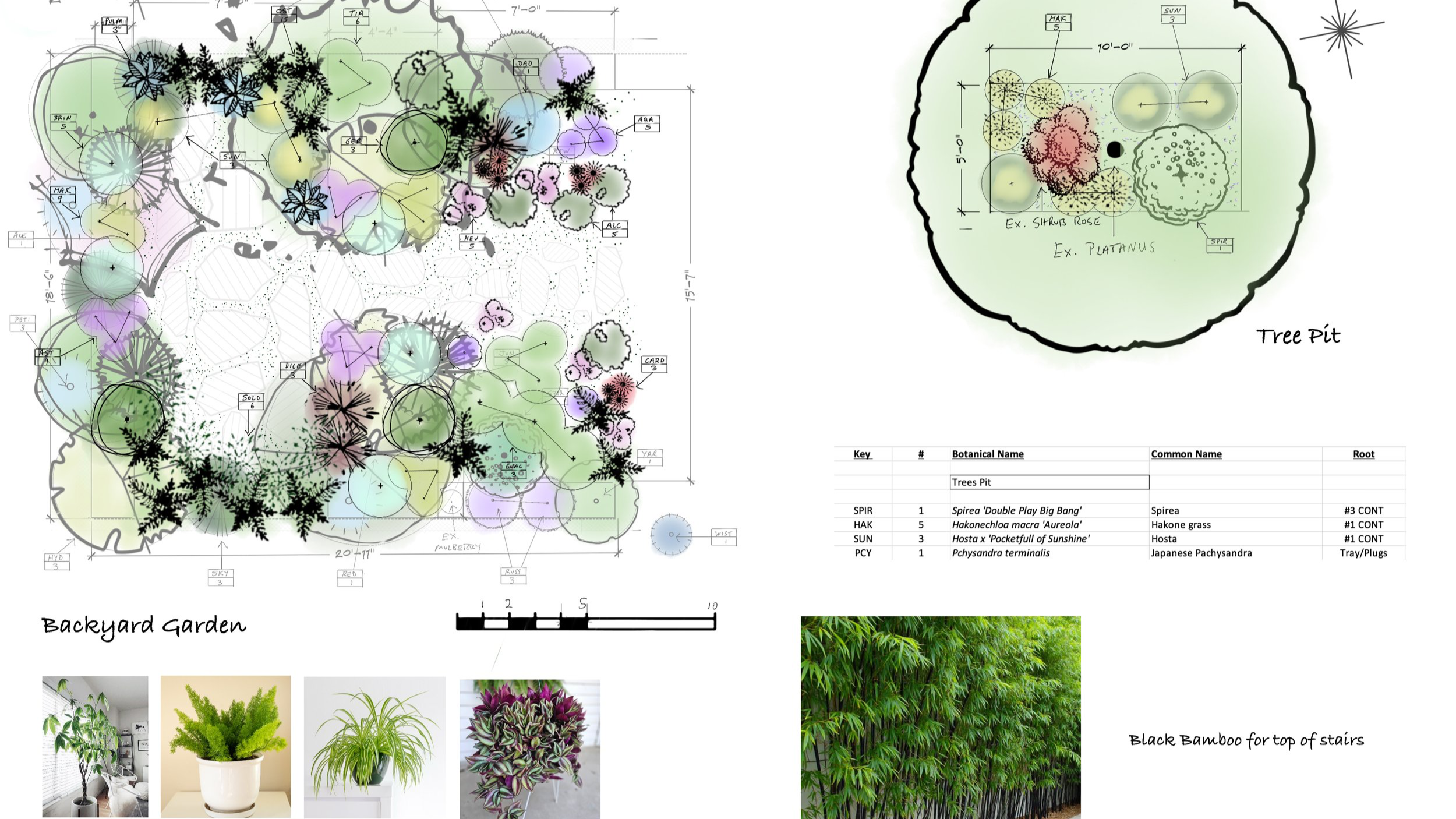FAQs
Why do I need a garden design/designer?
A good garden design is a thing of beauty and art, and it is also an investment in your property. A garden designer is valuable because they can use their expertise to create a well-planned, aesthetically pleasing outdoor space that suits your specific needs and style, considering factors like your site's conditions, desired functionality, and aesthetic preferences, while also providing creative solutions to challenges like difficult terrain or limited space, ultimately saving you time and potentially money by making informed plant and design choices that thrive in your environment; essentially, they can transform your garden from a basic outdoor area into a beautiful and functional extension of your home that reflects your personal taste. Garden designers have in-depth knowledge of plants, design principles, and local conditions, allowing them to create a garden that is both visually appealing and practical. A good designer will listen to your vision and incorporate your specific needs and preferences into the design. They can identify potential issues with your space and come up with innovative solutions to maximize its potential, including addressing challenging areas like slopes or shade. By designing a well-thought-out plan, they can help you avoid costly mistakes and ensure your budget is used efficiently. Garden designers conduct thorough site surveys to understand your property's unique characteristics, including soil type, sunlight exposure, drainage, and existing vegetation. They can choose the right plants for your climate and conditions, considering factors like bloom time, color, texture, and maintenance needs. A designer can provide detailed plans and specifications for landscapers to follow, ensuring your vision is accurately implemented. A well-designed garden can significantly enhance the curb appeal of your home and potentially increase its market value. A poorly designed garden can do the opposite.
How much does a garden design cost?
Every garden and every client is different. Many factors contribute to cost including: size, area, plant choice, conditions, irrigation, access, and more. Each quote is customized for the client, but a good rule of thumb is to consider whether you are a small, medium, or large garden and what your budget will be. Under $5,000 is probably not enough for both design and installation but may be right for more consultation and maintenance which can include some rough sketches and new plantings. Between $5,000-$10,000 is usually for a small garden. $10,000-$20,000 is medium. $20,000-$50,000 gets us into larger gardens and $50,000 and above is usually for a larger property or more intense hardscaping. Another way to estimate a full garden design is to take the total property value of house and land (your Zestimate on Zillow, for instance), and estimate 10% of that for your garden (design + installation + materials/plant costs). So, if your home is $450,000, you should allot $45,000 for your landscape. Again, this is not precise, but will give you an idea. We always customize based on needs, desire, budget, and goals, and can most often suggest a plan that will work for the client.
What is soil testing, and why do I need this service?
Soil testing is important to assess the composition of the soil and its nutrient content. Testing helps us understand the ratios of sand/silt/clay which are clues to its drainage potential, aeration, and workability and for the presence and levels of macro-nutrients (nitrogen, phosphorus, potassium, sulfur, calcium, magnesium) and micro-nutrients (zinc, iron, manganese, boron, chlorine, copper, molybdenum) and their availability to plant roots based on pH levels. Testing the soil’s pH tells us how acidic or alkaline a soil is and therefore how much of certain nutrients are available to plants at its pH level. This helps us plan both how we might approach remediating or amending the soil and/or designing for plants that will do best in these particular soil conditions. It is important to test the soil before designing and planting in order to make the best choices for the site. Soil remediation and/or amendments are best done before planting; although, working in compost, fertilizers, and mulch are all part of an ongoing soil health management strategy. Raincarver Studios performs a basic soil analysis and pH test as part of our services agreement, but if the client would like a more comprehensive analysis done through a soil health laboratory, this optional add-on is provided.
What is garden maintenance, and what can I expect?
Garden maintenance encompasses all the tasks needed to keep a garden healthy, attractive, and productive. It includes regular tasks like watering, weeding, and mulching, as well as more involved activities such as pruning, fertilizing, and pest control. A well-maintained garden provides enjoyment, enhances property value, and contributes to a healthier environment. Raincarver Studios provides plans for weekly, bi-weekly, monthly and seasonal maintenance contracts. Seasonal includes spring clean-up, summer check-ups, and fall cleanups that ready the garden for winter dormancy. Some light planting and relocating of plants can also be included. Regular maintenance is recommended for larger gardens and monthly or seasonal for smaller gardens. All maintenance plans may include: watering and irrigation monitoring, weeding, fertilizing, mulching, adding compost or other organic matter, pruning/trimming, light lawn care (for small patches of lawn) pest and disease control, and soil testing/amending, among other tasks.




